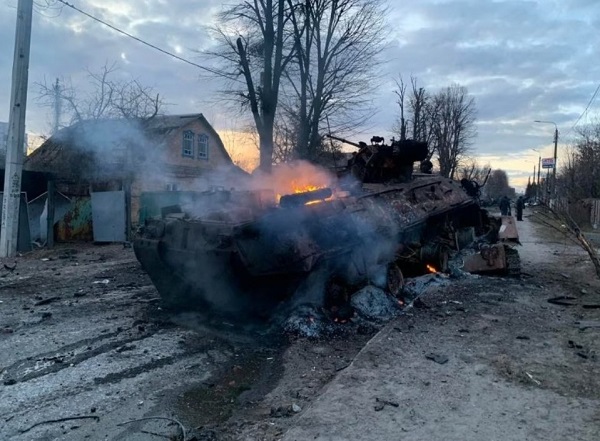New Delhi, (Asian independent) As the Ukraine-Russia war has led to talks of energy issues for that part of the world and a possible threat of another Chernobyl=like situation, experts have pointed out the need to pay attention to the potential water security that the war-torn country may face sooner rather than later.
Himanshu Kulkarni, executive director of the Advanced Center for Water Resources Development and Management (ACWADAM) has steered the concept of hydrogeology-based spring-shed management that has been practiced from local to national level, especially after he authored the NITI Aayog publication on Himalayan Springs’ Revival and Rejuvenation programme.
Kulkarni admitted that the impact of war on water resources, sub-surface water and groundwater/aquifers has not been documented in depth as much as it should have been. “But there is no denying that air, water and soil, all are polluted in a given war situation and especially in modern times when armed conflict means use of chemicals on a large scale,” Kulkarni said.
Geologist S.P. Sati, a Professor with Uttarakhand State University of Horticulture and Forestry, and having a number of research papers in peer reviewed publications, said that whenever missiles fired in war burst, they create cracks, the subsurface fractures are widened because of it.
The hilly areas, the undulating land may witness large scale damage to underground aquifers and also to subsurface water sources.
“Not just this, the massive scale of chemicals used in weaponry is also liable to contaminate the groundwater,” Sati told IANS.
Ukrainian citizens have already had complaints about the quality of water provided to its large population. Over and above it, in case of further chemical contamination, it is the survivors that would bear the brunt. A 2019 report by the United Nations Children’s Fund (UNICEF) pointed out that children in prolonged conflicts are more likely to die from diseases linked to the lack of clean water than from violence directly related to the conflict itself.
Ukraine’s major watershed comprises Danube (795,656 sq km), Don (458,694 sq km), Dnieper (533,966 sq km), and the Don and partly the Dnieper being part of the theatre of ongoing war. Ukraine occupies the southwestern portion of the Russian Plain (East European Plain) and comprises almost entirely of level plains. The Ukrainian landscape, however, has some diversity: its plains are broken by highlands as well as by lowlands, deep gorges and valleys and Uplands too, up to 1000 feet deep or high.
The southern area of Ukraine has not yet witnessed a war situation but with Russia approaching from Crimea, may soon be there. Mountainous areas such as the Ukrainian Carpathians and Crimean Mountains are found on that country’s borders and account for barely 5 per cent of its area.
Waterman and Stockholm Water Award winner Rajendra Singh said, forget humanity, this is a clear case of violence on nature. “Whenever there is a war, the greatest damage is caused to nature. It is a violence against nature. It leads to troubled humans. If not today, tomorrow that country shall face water security issues.”








